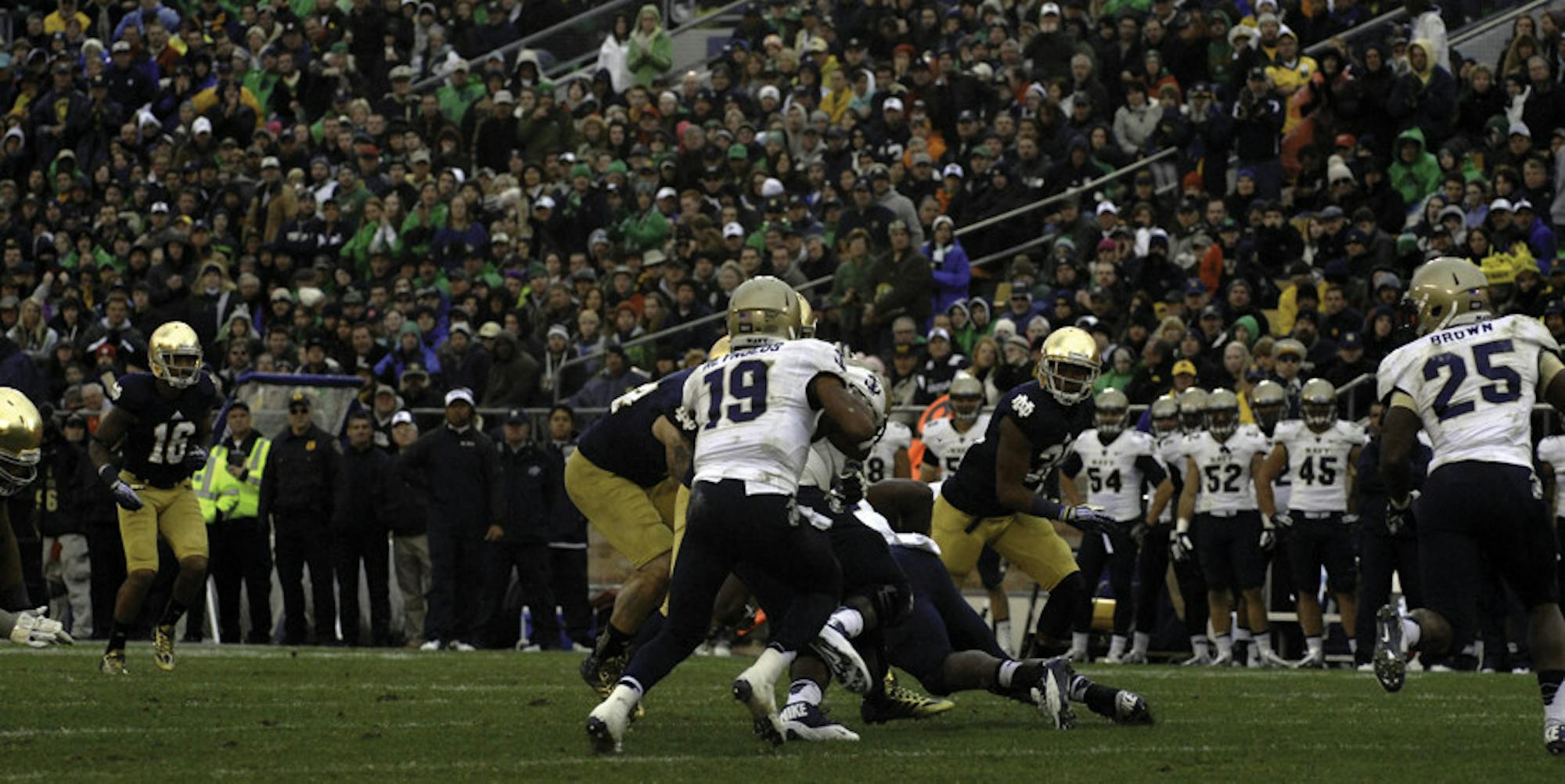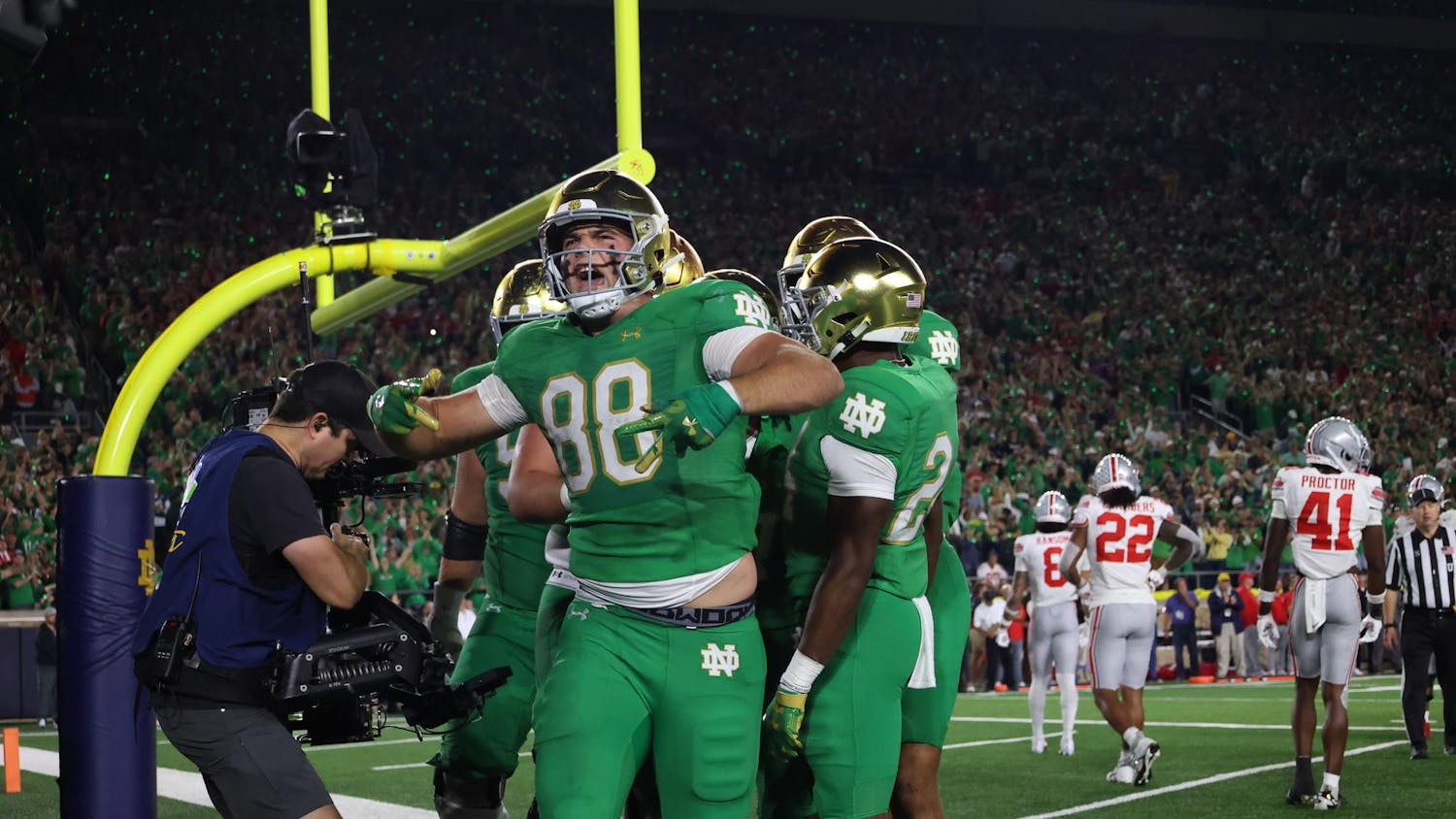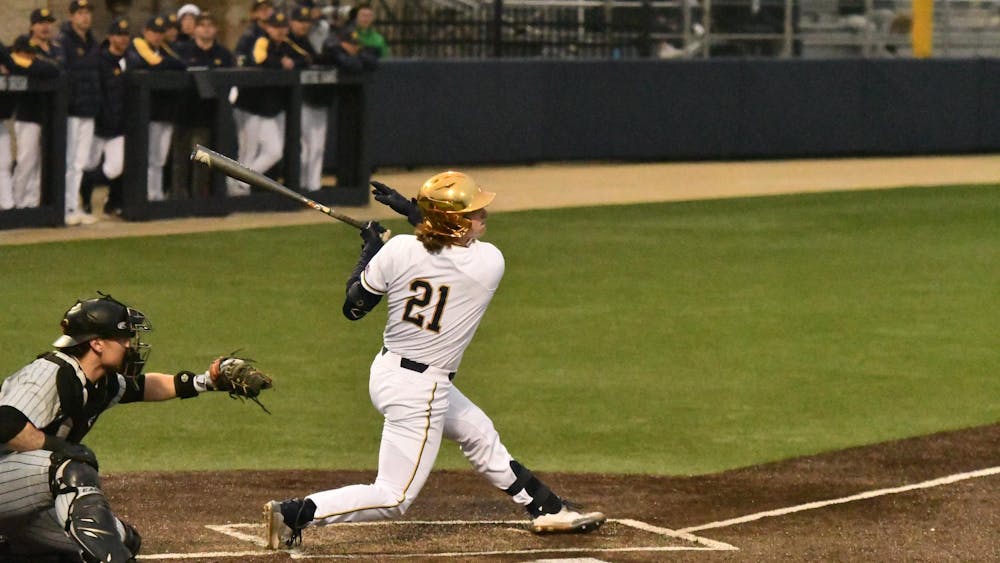
Observer File Photo
The Irish have played Navy and its triple-option attack every year since 1927. Sometimes, the Irish even double up on the option offense in a given season, as they did when they additionally played Army in 2010 and Air Force in 2011 and 2013 and will likely do when they host Georgia Tech next season.
Although Notre Dame faces the option at least once per season, the team is far from acclimated to the unique rushing attack largely because of the many in-game changes Navy and other option-based teams make, head coach Brian Kelly said.
“They know their system so well that each and every week they’re prepared in game, in game to make the appropriate adjustments based upon what they see,” Kelly said of Navy’s option attack in his Tuesday press conference. “I think more than anything else, it’s their ability to make the in-game adjustments to what they’re doing. Because they’re not sure exactly what they’re going to get every single week. Teams kind of defensively want to attack them different and try to defend the option differently.”
Kelly said Navy makes up for its general recruiting deficiencies by playing an attacking style that forces opponents to correctly read and react.
“I mean, they create a lot of problems, and I think the most important thing is that it’s not whether you’re athletic or strong or physical, it’s whether you can be one-eleventh of that unit and do your job, and get off blocks and make plays and make tackles,” he said. “That’s why this offense is a great equalizer as it relates to size, speed and strength.”
Irish senior safety Matthias Farley, who made his first collegiate start against Navy in 2012, said the triple option’s success comes down to fundamentals, an area in which Navy excels.
“The triple option is just so different that what you normally face — that’s a big deal — and also they’re surgical with it,” Farley said. “The guys are always doing the right thing and always doing their assignments, so you have to be fundamentally sound each and every play to stop it.”
Preparing to face the triple option necessitates a series of practice adjustments for the Irish, including the scout team having to simulate the opposing offense. Despite these efforts, it still takes players some time to adjust to the game speed of a triple-option based offense, Irish sophomore linebacker Jaylon Smith said.
“It’s much different — it doesn’t matter how well you prep it — it isn’t going to be as efficient as Navy will run it,” he said. “It’s about the ebbs and flows of the game, you gotta get adjusted to it. The first quarter and a half, it’s going to be fast.”
The Irish also made some adjustments on their defensive line this week to account for Navy junior quarterback Keenan Reynolds and the Midshipmen offense. Sophomore defensive lineman Isaac Rochell moved inside, while junior defensive lineman Sheldon Day moved out to the edge.
“Nothing against Sheldon, but we figure Isaac can be a more powerful player, and Sheldon can be more finesse, very technical,” junior defensive lineman Jarron Jones said. “Me and Isaac inside, we should be able to take shots at the fullback hopefully and stop the run.”
Despite his concerns about the triple option, Kelly is 6-1 against option teams in his career at Notre Dame. His lone loss came in his first meeting against Navy in 2010, when the Midshipmen defeated the Irish, 35-17, at MetLife Stadium.
Several of the matchups since then have been blowouts — Notre Dame defeated Navy, 56-14, in 2011 and 50-10 in 2012 and topped Air Force, 45-10, last season. But others have been offensive slugfests — witness the 59-33 win over Air Force in 2011 and the 38-34 victory over Navy last season, in which the Irish allowed 331 rushing yards.
The point being, there’s no way to predict how a matchup with the triple option will go.
And for the Irish, this year’s matchup with Navy has an extra factor: defensive coordinator Brian VanGorder and his scheme.
VanGorder hasn’t faced a triple-option team since he was defensive coordinator of Georgia in 2004, when the Bulldogs defeated Georgia Southern, 48-28. The Eagles ran for 294 yards on 63 carries.
But Kelly added that VanGorder’s aggressive scheme, which has helped the Irish rise to 14th nationally in scoring defense, will not drastically affect the team’s approach against Navy’s top-ranked rushing offense.
“We talked just about preference relative to where we want to put the birds, where we want to put our guys,” Kelly said of his conversations with VanGorder. “But our philosophy is the same.”













